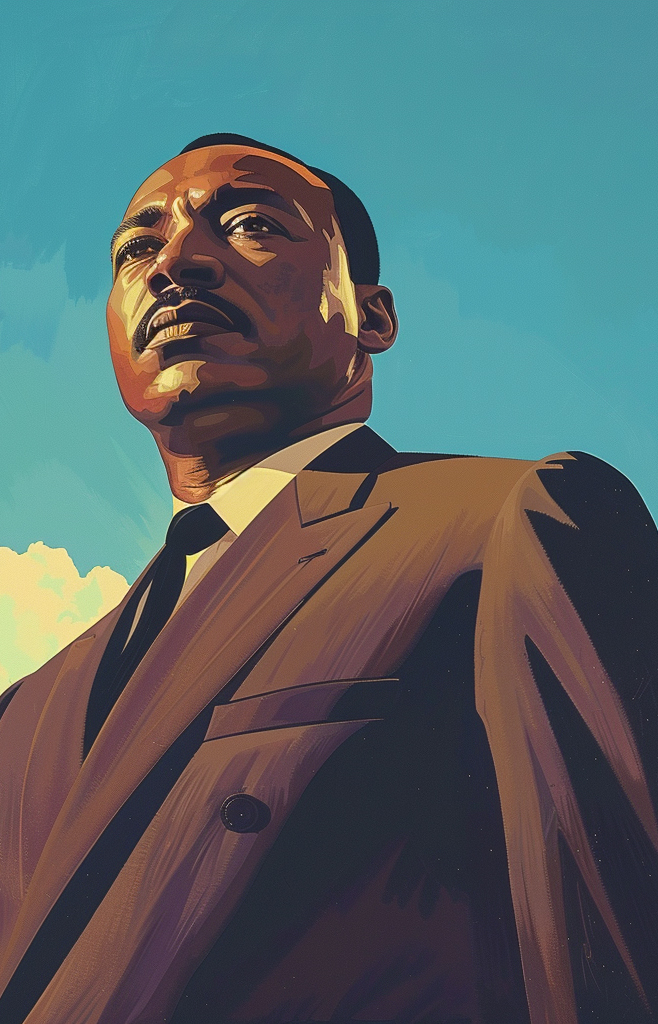Why were the Memphis sanitation workers on strike in 1968?
For generations, black people coming in from the countryside would take these bottom-end jobs, and the whole system was designed to keep them in bottom-end jobs. About 40 percent of those who were working for the sanitation department qualified for welfare. They had tried since 1958 to organize a union; in 1966 they had attempted to go on strike.
Part of the problem was the horrible conditions on the job. When they went into white neighborhoods, they had to eat their lunches under the garbage truck or in the back of the truck where the garbage was. In February 1968, two black workers were riding on the back of a truck, trying to stay out of the rain. An electrical short or something happened, and the packer went into action and just packed them in there like garbage and killed both of them. There was another incident where black workers were sent home when it rained and white workers were allowed to stay. The whites made a full day’s pay.
So, on February 11, a Sunday, they held a meeting. Maybe 800 to 1,000 people were there. They hadn’t prepared anything. They hadn’t created a strike fund. They just said “We quit.” On Monday morning, they did not show up for work.
What was Memphis’ reputation at this time on the issue of civil rights?
The civil rights movement had challenged segregation quite successfully in Memphis, desegregating most public facilities without a lot of upheaval. Theoretically, they had desegregated the schools, although hardly anything had been implemented. They had the largest NAACP chapter in the South, and it had a fairly well-educated leadership. So they won quite a few things, but it was all on the surface. People in other parts of the South thought Memphis had good race relations. The reality is that Memphis is like the capital of northern Mississippi. It was as Deep South as any Mississippi town.
When Dr. King decided to march with the strikers as part of his Poor People’s Campaign, did civil rights veterans feel that he was straying from the cause?
King was under incredible attack from all quarters in 1968. His Poor People’s Campaign was an attempt to create an economic agenda that would, he thought, unify people and change the political structure of the country. He was also making a very strong stand against the Vietnam War, but he tied it in with race and poverty. The FBI and white conservatives were saying he was a traitor or a Communist. The more conservative wing of the civil rights movement said: “You’re moving away from civil rights. You’re getting the issues confused.”
How does this episode fit into the broader history of the movement?
It’s an untold part of the movement for social change and equal rights. A lot of people know about the Montgomery bus boycott and Rosa Parks. People know about Selma and Birmingham and the March on Washington and “I Have a Dream.” But they think the movement stops in 1965 after the Voting Rights Act. Actually, I think the most significant period of King’s leadership came after that. King said the Civil Rights Act and Voting Rights Act made it possible for black people to participate, but there were larger socio-economic problems to solve. Most people know that King was killed in Memphis. They don’t really know why.
What were the long-term effects of the march and King’s assassination on the city of Memphis?
The power structure politically has become pretty interracial. There are a lot of black political leaders. They’ve turned the Lorraine Motel into the National Civil Rights Museum. They really pay homage to King and the movement of 1968. That’s incorporated into the city’s identity, at least at the official level.
But the continuing tragedy of all this is that, economically speaking, conditions have not improved for the great majority of the black population. It’s still a city marked by incredible income inequality along racial lines, and a large percentage of the black population is shut out from the modern economy by lack of education, job skills and access to training. A lot of things have changed for the better, but the economic divide that King was talking about is still the main issue.
Originally published in the February 2007 issue of American History. To subscribe, click here.





